The post Cigy’s story – a tale of hope from Rwanda appeared first on Hope and Homes for Children.
]]>When Cigy was born with disabilities, Mutoni did everything she could to support her daughter. She worked hard and took Cigy to nearby health facilities for care. But the pressure was immense, and her husband rejected Cigy completely. Mutoni’s marriage ended, and she moved in with her mother, who helped her with Cigy and her two other young children.
Tragedy struck when Mutoni’s mother died, and local people convinced Mutoni to send Cigy to a residential institution for children with disabilities. Mutoni was heartbroken to send her daughter away, but she believed it was the best possible thing for her child.
Life in the orphanage was grim. Cigy was severely neglected and lived in appalling conditions. Instead of playing with other children, she was bedbound and unable to move. “When I visited her,” Mutoni says, “the stink was so overwhelming that I couldn’t stay inside.”
Mutoni desperately wanted Cigy back with her family, but she feared she would be unable to provide the care her daughter needed. Our team stepped in to provide advice, emotional support, and practical help so the family felt confident in caring for Cigy once she returned.
To ensure the family had a stable foundation, we bought them a home, giving them security and dignity. We also helped Mutoni start her own business selling clothes, which increased the family’s income and financial independence.
We arranged regular physiotherapy sessions for Cigy, which began an incredible transformation. Within just three months of leaving the orphanage, she had gained 10 kilograms, regained the use of her hands and upper body, and had begun to dance and respond to signals and sounds again.
“You not only brought my daughter back to me – you gave us a home, a way to survive, and the strength to live again as a family.”
Mutoni, Cigy’s mum
Today, Cigy is thriving with the protection and care only a loving family can provide. “She looks like the child I remember before she was placed in the institution,” Mutoni says. Richard Munyaneza, Safeguarding Coordinator at Hope and Homes for Children Rwanda, recalls, “When I first met Mutoni, she was very sad and unsure if she could care for Cigy. Now, seeing her happy and Cigy enjoying life with her family is amazing. It shows how much can change with the right support.”
Photo credit: Richard Munyaneza/Hope and Homes for Children
*To ensure the safety and privacy of the people we support, the names of the children and relatives featured in this story have been changed.
The post Cigy’s story – a tale of hope from Rwanda appeared first on Hope and Homes for Children.
]]>The post “It was the happiest day of my life, when I took my boy back” – Ivan* and Stoyan’s* story appeared first on Hope and Homes for Children.
]]>Stoyan* will never forget the night Ivan*, his three-year-old son, was taken from him.
“A policeman came to the door and entered my home without asking and just took him. No warning, no support”, he remembers. “It was terrible.”
Ivan had cerebral palsy, and the authorities decided Stoyan, a single dad on low income, wasn’t fit to care for him. As a result, Ivan spent two years inside an orphanage. Lonely. Afraid. Until people like you brought him safely back to family.

Hope and Homes for Children
The pain of separation
Overnight, Stoyan’s life changed forever. After his wife left, he’d worked night and day to care for their son. But now, everything was ripped away.
“It was horrible”, Stoyan remembers. “I’m a labourer and I was working 12 to 15 hours a day because I couldn’t sleep. My friend told me, ‘If you carry on like this, you’ll kill yourself.’ I was waking up in the night and crying because Ivan wasn’t with me.”
“I was waking up in the night and crying because Ivan wasn’t with me.”
Sadly, Ivan was suffering too.
Inside the orphanage
Ivan spent the next two years heavily medicated. Confined to a cot in a darkened room on the top floor of the orphanage, he’d wait for his dad to visit.
“The institution would allow me to visit only once a week for 15 minutes, between 1030 and 1130 when Ivan was tired and hungry”, Stoyan remembers. And worse, every time he came, he saw his boy’s condition getting worse.
“How was the care? Total zero care,” he recalls. “They tied him into a wheelchair. Before then, Ivan was beginning to stand and walk with support and he had started to speak. He could say mummy and daddy.”
“They tied him to a wheelchair.”
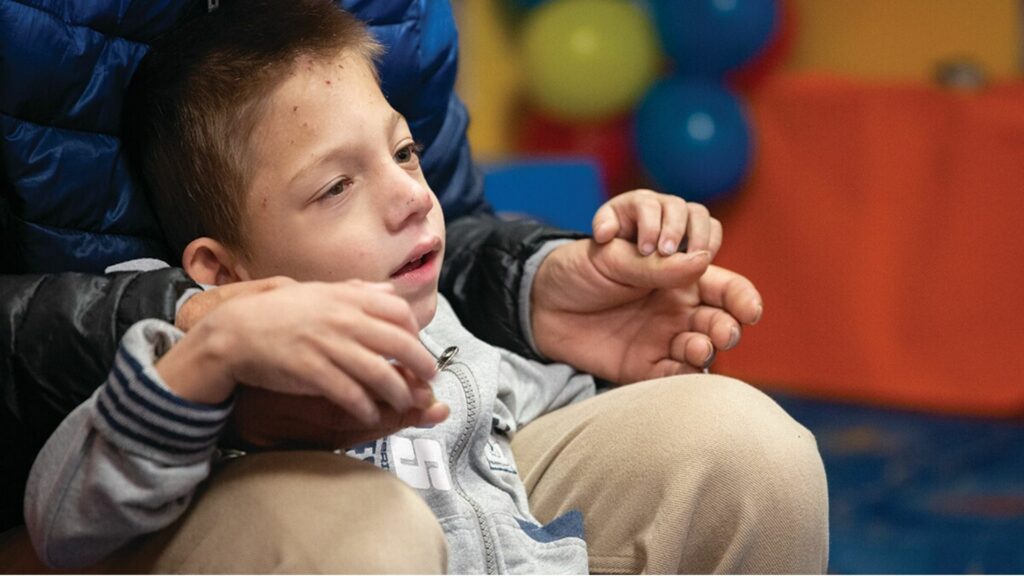
Hope and Homes for Children
For two years, Stoyan fought a lonely battle against red-tape, prejudice and indifference. The odds were stacked against him.
“First, if I take my boy home, the institution loses income”, he explains. “Then, even when I went to court and won full custody of my son, the institution just ignored it.”
Ivan was stuck.
Family first
Ivan’s experience is all too common. Around the world, 80% of the 5.4 million children in orphanages have living parents. And one in three children in orphanages have disabilities.
One in three children in orphanages have disabilities.
European Disability Forum
The one-size-fits-all model of institutional care doesn’t help children. It harms them. Above all, children need love, care and personal attention. Something even the “best” orphanages can’t provide.
Stoyan knew he had to get his boy home. And thanks to your generosity, he found the help he needed.
The fight begins for Stoyan
Since 2011, our team in Bulgaria has been working to close orphanages and bring children living inside back to family. Children like Ivan.
Elitsa Ivanova, one of our support workers, discovered Ivan’s case, and immediately started working to help Stoyan.

“The local child protection department lied to him,” Elitsa remembers. “They kept setting him tasks and challenges but when he met them, each time the authorities let him down again. Because he is a man on his own, people could not see him as the parent for a child with a disability.”
“Because he is a man on his own, people could not see him as the parent for a child with a disability.
Elitsa knew that Stoyan was a loving father. She knew all he needed was some help. And thanks to your support, that’s what he finally received. Help.
Helping Stoyan change the tide
Your donations helped Stoyan convince the authorities he was the best option for Ivan. They helped him find a better place to live, as well as all the essentials he needed to support Ivan and his disabilities.
With your help, and Elitsa’s team by his side, Stoyan brought Ivan back to family.
“It was the happiest day of my life, when I took my boy back,” Stoyan remembers. “Now, we like to do everything together. He is very affectionate, he hugs and kisses me. He likes my stubbly chin so I don’t shave for him!”
Read more about how your donations help parents bring their children back to family.

Hope and Homes for Children
Looking to the future
Today, Ivan’s doing much better. Stoyan says he has seen a rapid improvement since Ivan stopped taking the drugs that were prescribed by the institution. Now, he can stand and walk by himself, and is slowly learning to speak again.
When we asked Stoyan about the challenges he faces, he told us simply, “There are no challenges now. I just love my boy and I am not interested in anything else.”
“There are no challenges now. I just love my boy and I am not interested in anything else.”

Hope and Homes for Children
Thank you
Thanks to your continued support, our team was able to support more children like Ivan – standing up for their right to a loving, family home. Today, the orphanage has been shut down. And that’s all thanks to your help.
Want to hear more incredible stories about the impact of your donations? Sign up to our Mailing List and receive more heartwarming and inspiring examples of children finding their way back to family.
Join the Mailing List
SUPPORT OUR WORK We need your help
Your donation will help us bring more children like Ivan back to family.
The post “It was the happiest day of my life, when I took my boy back” – Ivan* and Stoyan’s* story appeared first on Hope and Homes for Children.
]]>The post Disability Pride Month 2024: Empower, Nurture and Celebrate appeared first on Hope and Homes for Children.
]]>Welcome to Disability Pride Month 2024. Join us as we raise awareness, foster inclusivity, and advocate for the rights of all people with disabilities around the world.
At Hope and Homes for Children, we believe every child deserves a loving, family home. Yet sadly, one in three children living in orphanages have disabilities.
Whoever they are, wherever they are, every child deserves the chance to thrive. That’s why, this Disability Pride Month, we’re championing these children and their right to come back to family.

Hope and Homes for Children
Disability Pride Month Facts & Tips
What is Disability Pride Month?
You might be wondering, ‘What is Disability Pride Month?’
It’s celebrated every July and marks the anniversary of the Americans with Disabilities Act (ADA) signed in 1990. This landmark legislation was a significant step towards ensuring the rights and freedoms of people with disabilities.
Now, we dedicate the month to highlighting the incredible achievements of the disabled community and standing up for their rights to equality, inclusion, and visibility.
When is Disability Pride Month?
Disability Pride Month takes place every July – a perfect time to reflect on the progress made since the ADA was enacted.

Hope and Homes for Children
How to Observe Disability Pride Month
Wondering how to observe this year’s Disability Pride Month?
- Get engaged – There’s plenty happening this month. From flying the Disability Pride Flag to taking place in some local Disability Pride parades and events in your community, there’s always great ways to get engaged.
- Get educated – Read up on what it means to be part of the disabled community, and how you can be an ally.
- Get involved – The best way to observe Disability Pride Month is to engage in fundraising. We’re always looking out for fundraisers and volunteers on our Get Involved page. Head over to find out how you can help out this month.
No matter what you plan on doing, make sure you take some time out for reflection and research. Above all it’s a month for solidarity and celebration. Overall, it’s a month to get involved.
Disability Pride Month 2024
For Disability Pride Month 2024, a huge suite of workshops, events, and demonstrations will take place. Reach out to your local community hub to see what’s on for Disability Pride Month in the UK.
Why Disability Pride Month Matters
People with disabilities can face huge barriers in our society, as well as unfair discrimination and prejudice.
Disability Pride Month reminds us of how important the fight for inclusion and equality is. Celebrating Disability Pride Month helps us break down stereotypes, creating a society where everyone thrives. No matter who they are.

Hope and Homes for Children
Supporting children with disabilities
This Disability Pride Month, we’re platforming our ongoing commitment to supporting children and young people with disabilities all around the world. Every child deserves a home. Every child deserves to find their way back to family.
Orphanages and children with disabilities
The UN Convention of the Rights of Persons with Disabilities states the right of all people (including children) with disabilities to independent-living, family life and to access the highest standard of health care, and inclusive education without discrimination.
Yet still, young people with disabilities are among the most vulnerable in society.
Did you know?
- One in three children in orphanages have disabilities.
- Without the right support, struggling parents may feel like their only option to get their children the care they need is inside an orphanage. Sadly, it’s not true.
- Orphanages can neglect children and young people with disabilities, exposing them to violence, abuse, and even trafficking.
- Young people with disabilities in orphanages don’t get the individualised support they need, depriving them of their chance to grow with their disabilities.
You can read more about how orphanages harm children and why children with disabilities need loving family homes on our website.
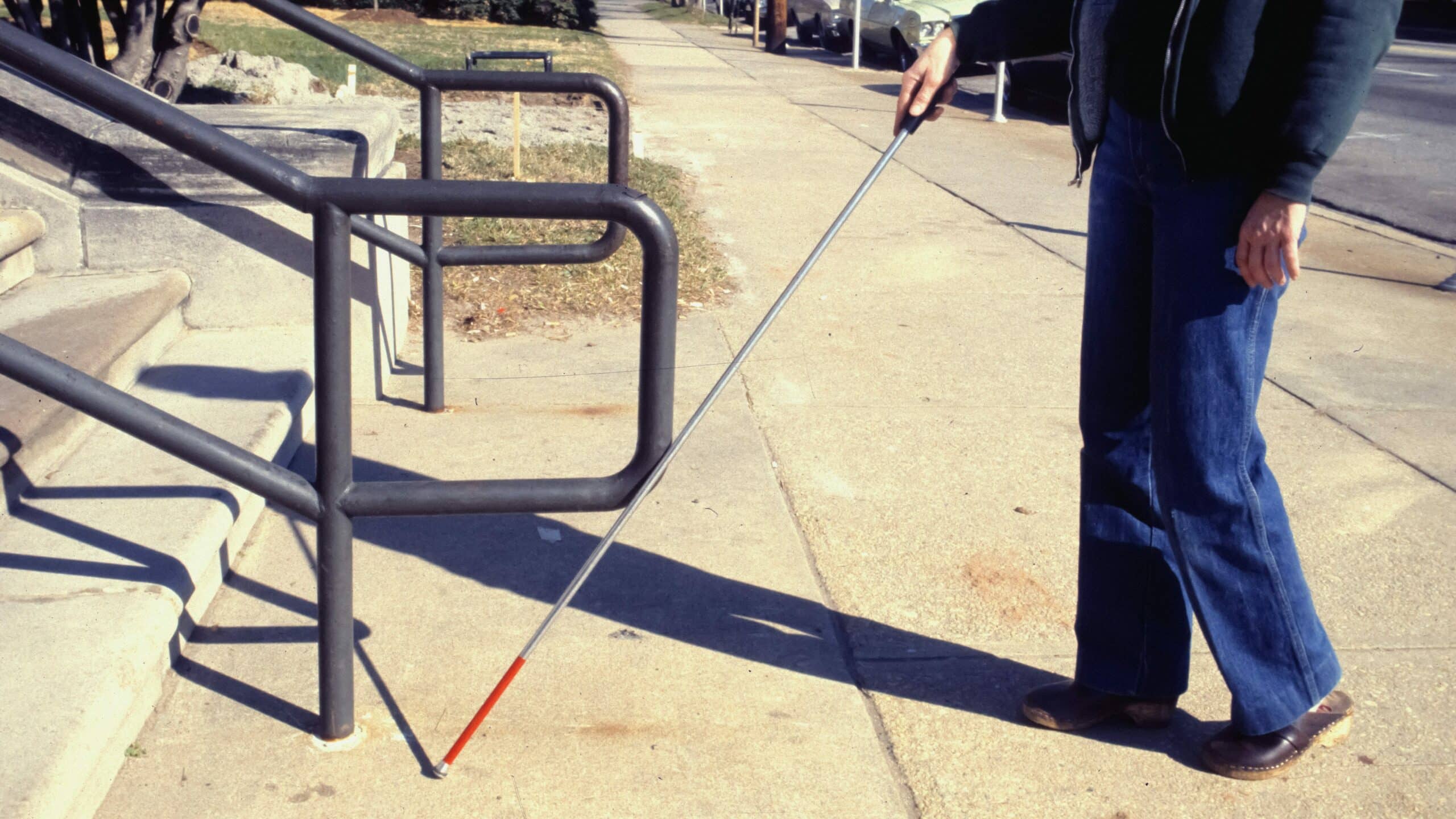
Hope and Homes for Children
How are we helping?
It’s our mission to bring every child living in orphanages back to family. Including children with disabilities. We work tirelessly to dismantle orphanages and reform childcare systems globally, ensuring every child, regardless of ability, grows up in a nurturing family environment.
Our work proves that young people with disabilities always thrive when they return to their families. Young people like Divine*.
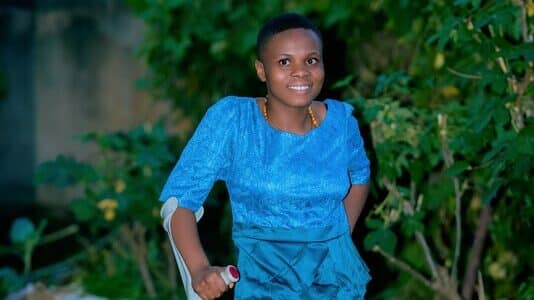
Joas Mvukiyehe / Hope and Homes for Children
Divine’s story
Divine, born with disabilities, was placed in an orphanage because her mother, Ruwera, fell sick and couldn’t afford to care for her anymore. She prayed she’d receive the support she needed. Instead, Divine suffered for nine long years.
Thankfully, your donations helped bring Divine out of the orphanage and back to family. Now, she’s happy, healthy and surrounded by family.
“In years to come, I’ll become a journalist or a lawyer. I want to advocate for people living through injustice, like people with disabilities.”
Divine
Read Divine’s full story here.
How You Can Make a Difference
- Read their stories: Learn more about what life for children living with disabilities. Children like Uwase* and Ivan*.
- Spread the word: Share information on social media and in your community. Use the hashtag #DisabilityPrideMonth to join the conversation.
- Donate today: Your contributions help us continue our vital work in reuniting children with disabilities with their families. Every donation makes a significant impact.

Joas Mvukiyehe / Hope and Homes for Children
Subscribe to our Mailing List
Thanks to your support, we’re making waves for children with disabilities, all around the world.
Want a regular dose of impact straight to your inbox? Subscribe to our mailing list—it’s jam-packed with heartwarming stories, interesting facts and exciting ways to get involved. Welcome to our movement.
Join the mailing list
The post Disability Pride Month 2024: Empower, Nurture and Celebrate appeared first on Hope and Homes for Children.
]]>The post Watch now: Divine’s incredible journey Back to Family appeared first on Hope and Homes for Children.
]]>Thanks to your donations, Divine is happy again. Out of the orphanage. Back to those who love her. Back to family. Watch her incredible feature for insight into the incredible impacts of your donations.
Watch now: Divine’s Journey Back to Family
Will you help get millions of separated children #BackToFamily? Donate today.
Today, Divine’s living her life as a confident young woman. Surrounded by family. Surrounded by love.
Divine’s story – life inside an orphanage
Divine, who was born with disabilities, spent nine years alone in an orphanage. Like 80% of children in institutional care, she wasn’t an orphan. She had family, family who just needed support. Divine’s mother, Mahoro*, remembers when Divine was sent away.
“It was so difficult for me to take care of her. I needed assistance for her medical care.”
Mahoro, Divine’s mum.
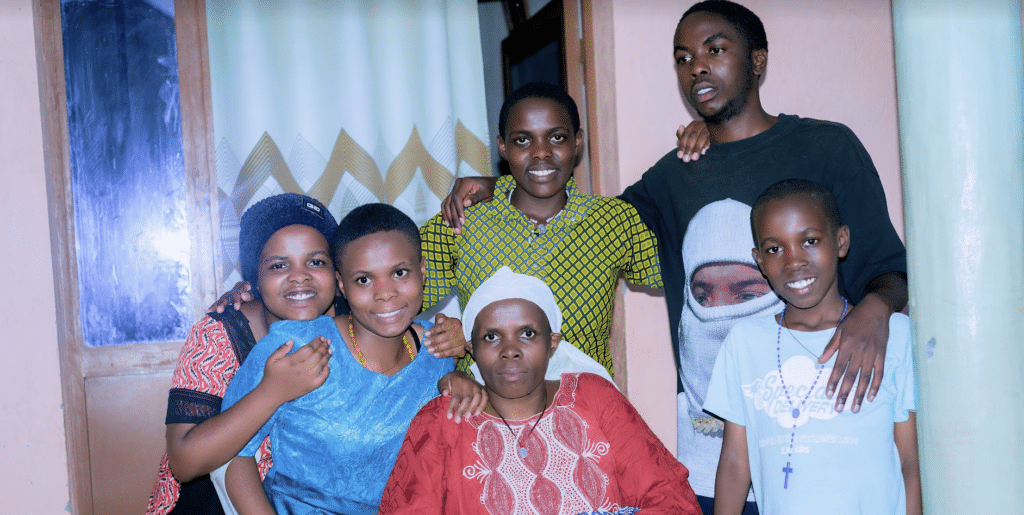
Joas Mvukiyehe / Hope and Homes for Children
Mahoro was seriously ill at the time, and needed help to support Divine’s development. Instead of receiving help, her family was torn apart. And Divine lost huge swathes of her childhood inside an orphanage. Neglected. Alone.
“Life in the institution is so hard, and constantly hearing that you are an orphan even though you have parents hurts so much. Having brothers and sisters, and being the only family member living in an institution – you wonder what you have done wrong to end up there.”
Divine
Coming back to family
Thankfully, people like you stepped in to help. Mahoro received the support she needed all those years ago. And Divine was finally able to go home. Gisa*, one of our social workers in Rwanda, remembers when Divine found out she was going back to family.
“The day before she went home, she was very anxious. She folded her clothes so carefully and packed her bag early. She kept asking if things with her family and caseworkers might change, and if she might not go home after all.”
Gisa, Hope and Homes for Children Social Worker
Thanks to your donations, everything went right on track. Divine came home from the orphanage. After nine long years, back to family.
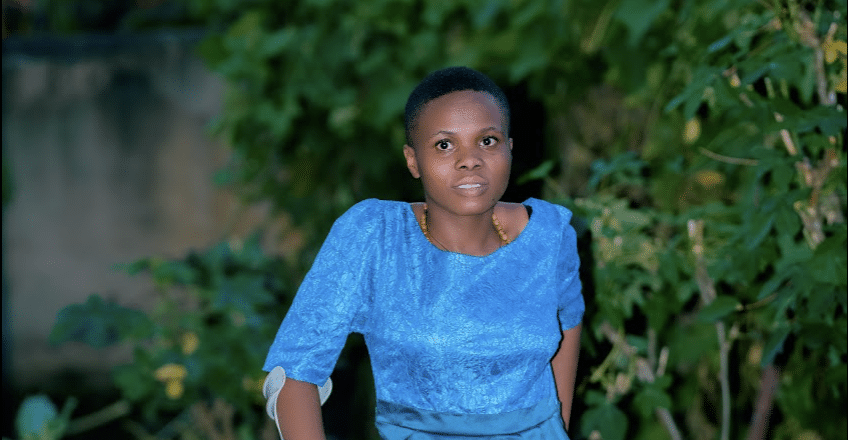
Joas Mvukiyehe / Hope and Homes for Children
Learn more about how we bring children like Divine back to family.
The importance of home
Now she’s back home, Divine’s life has changed immeasurably. She looks back on those days in the orphanage with a sense of sadness, reflecting on the 5.4 million children who still remain trapped inside.
“If you remain inside an orphanage, your ability to learn will be limited,” says Divine. “You’d grow up lacking essential life skills. But when in a family, you’re in a place where you’re supposed to be, as a human. Where you learn skills, where you prepare for independence in later life, to rely on yourself without parents’ support.”
Learn more about how orphanages harm children.
When in a family, you’re in a place you’re supposed to be, as a human.
Divine
Once neglected and alone, Divine now has the power to grow. Because when you’re loved, you’re limitless.
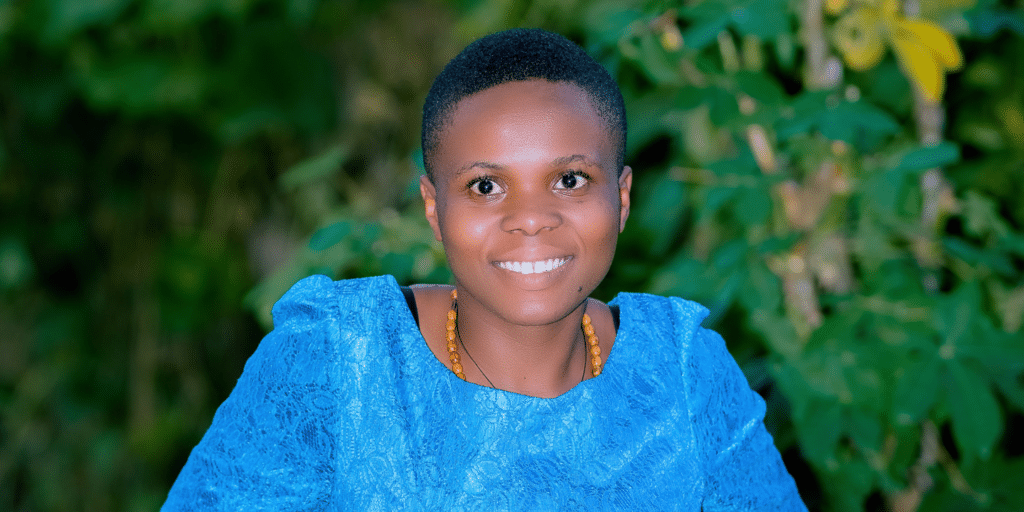
Joas Mvukiyehe / Hope and Homes for Children
Looking to the future
Today, Divine’s got great hopes for the future. She wants to pursue her education and realise her dreams.Divine’s ambitious, confident, and determined to advocate for change for people experiencing the same things she did.
“By God’s grace, I’ll become a journalist, or I’ll study law. I want to advocate for people in justice, mainly people with disabilities, because things are not advancing. There are some things people don’t know, but I, as someone who lived in an institution, know them. I can understand the challenges these people encounter, and what they can do as a response. That’s what I want to do.”
Divine
And now that she’s back to family, that’s exactly what she’ll do.

Joas Mvukiyehe / Hope and Homes for Children
Your generosity got Divine #BackToFamily. Now, will you help millions more children like her? Donate today.
Right now, 5.4 million children are trapped inside orphanages. Children like Divine. Together, we can help children get back to family.
Head to our donation page and make a gift today.
* Names changed to protect identity.
Join the movement Bring separated children back to family
Help millions of children like Divine.
The post Watch now: Divine’s incredible journey Back to Family appeared first on Hope and Homes for Children.
]]>The post 3 incredible stories of love from parents worldwide appeared first on Hope and Homes for Children.
]]>All too often, interconnecting factors like poverty, access to healthcare and education, and a misrepresentation of the orphanage system mean parents are unnecessarily separated from the children they love. Today, and every day, we support parents and fight to keep families together. Because children deserve families, never harmful orphanages.
Here are 3 incredible stories of love from parents worldwide, and the work we have done to support them.
Fighting to keep their family together
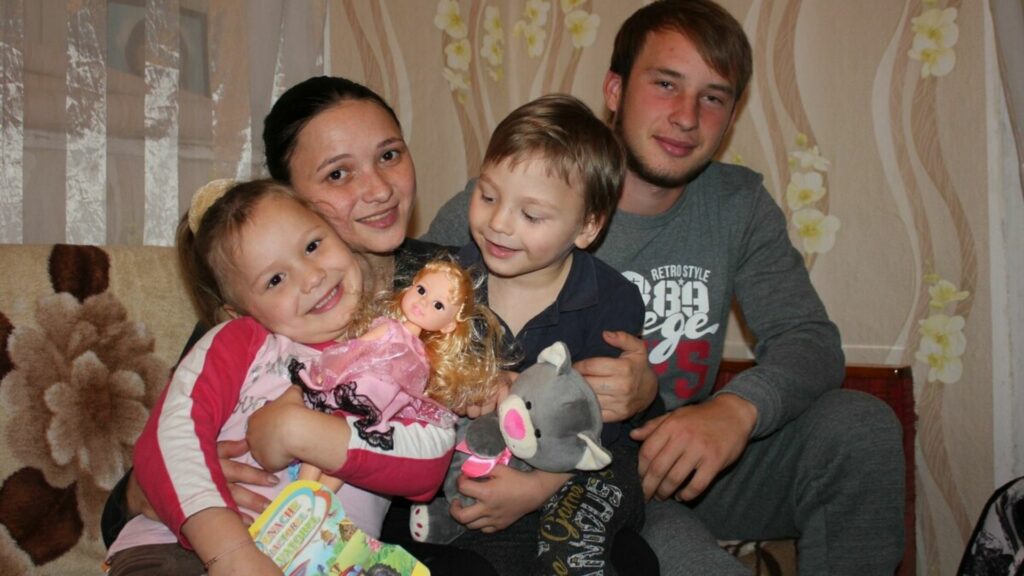
Vasilica* was only four months old and his sister, Ecaterina*, was just one when they were sent to live in the orphanage. Vasilica was born prematurely with cerebral palsy. Poverty and discrimination made it very hard for his mum, Ana*, to care for him alone, without adequate support.
The authorities thought both her children would be better off in an institution. But orphanages don’t protect children, they harm them.
Ana battled for two years to bring her children home again. Through our local partners, CCF Moldova, we made sure she had the practical and emotional support that she needed to succeed. “I saw that Ana loved her children and she fought for them,” says Natalia, the experienced social worker who stood by her, every step of the way.
In the orphanage, Vasilica spent long hours alone in a cot with no one to play with him, encourage him or love him. Today, reunited with his family, he’s a very active, much-loved little boy who likes building tall towers with his wooden blocks and playing chase with his sister.
Creating a new family for Uwera*
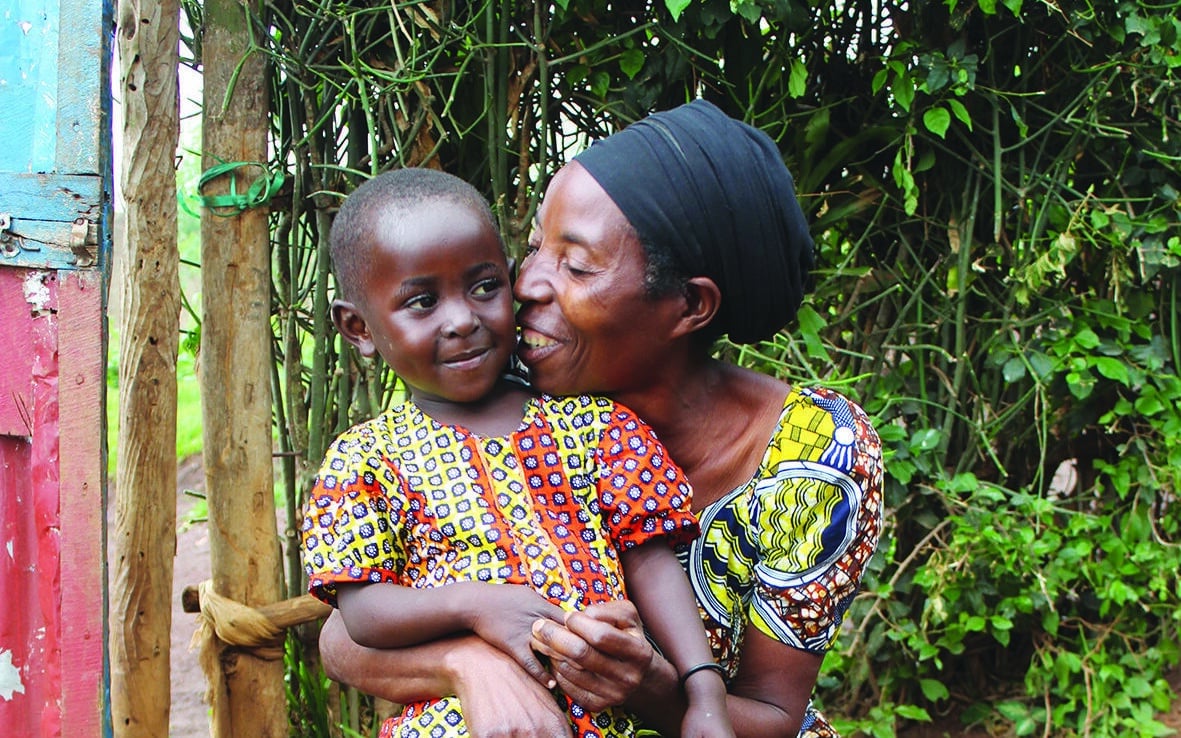
One evening, Atete heard cries from the trees near her yard. There, she found Uwera, a newborn baby girl, abandoned on the ground. Atete scooped Uwera up, took her home and cared for her for three weeks while the community tried to find Uwera’s parents. Once it was clear that no trace could be found, the authorities insisted that Uwera must be taken to an orphanage. Atete was heartbroken. She knew that the last thing an orphanage would provide was the first thing that Uwera needed: someone to love her.
For two years, Uwera struggled in terrible conditions in two different orphanages. She slept on the floor with insects crawling over her and she was fed just once every 24 hours. Shouted at if she made the slightest noise, Uwera stayed silent and struggled simply to survive.
Luckily, following a new commitment by the Rwandan Government to end the use of orphanages, our specialist child protection team in Rwanda was able to work with their local authority partners to close the orphanage and give Uwera back her childhood, reuniting her with Atete.
Uwera has been with her new family for 3 years now. Today, she’s walking and talking, running and jumping. Atete’s older children love to play in their little home. Soon Uwera will begin nursery alongside the other children in her community, and Atete has applied to officially adopt her so that they’ll never be separated again.
Rebuilding their family with love
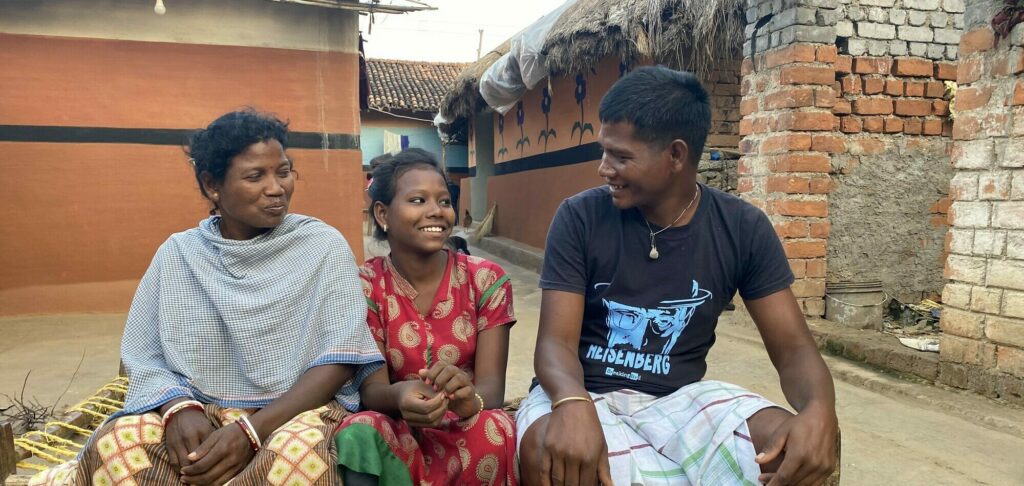
One morning in 2013, Devi was travelling with her mother when their train stopped at a busy railway junction. Without telling her mum, Devi jumped down to fill up her water bottle. While her back was turned, the signal changed and their train pulled out, leaving Devi behind.
For the next seven years, Devi was moved from institution to institution, but no effort was ever made to trace her relatives and reunite her with her family.
In 2015, Devi was sent to live in a shelter for girls in the heart of Ranchi City, the capital of Jharkhand state. This is where she first met Neepa, a social worker with the development NGO, CINI. With support from Hope and Homes for Children, Neepa and her colleagues worked with Devi to recall details about her childhood, contacting local authorities and visiting station after station and asking local people if they knew of a child going missing seven years ago. Until, finally, they found her family again.
When Devi’s father saw her again after seven long years, tears of joy rolled down his face. Sadly, Devi’s mother had never returned but her father now had a new partner and a son. Devi’s oldest sister lived with them too.
The day that Devi officially rejoined her family was very moving for everyone. “Devi cried with emotion as she struggled to find the confidence she needed for the next stage of her extraordinary journey,” Neepa said. “Then she hugged her parents and smiled back at us as she stepped back into a life of love, affection and family care again at last,” she remembers.
How we support families
We keep families together, we reunite families, and we create new families. Family, children and parents are at the heart of everything we do. The three stories shared above show how our global teams work tirelessly to keep families together.
We believe that a child is always better off as part of a strong, supported family. That’s why we’re working to close the doors of orphanages forever so that no child has to be separated from their parents and face the long-lasting harm orphanages cause.
If you would like to donate to our work supporting loving parents and keeping families together, you can do so here. Thank you.
The post 3 incredible stories of love from parents worldwide appeared first on Hope and Homes for Children.
]]>The post Meet Rugwiro*: the foster father going above and beyond to protect children appeared first on Hope and Homes for Children.
]]>Read part one of Richard’s blog here
We were only able to fully close an orphanage in the Gatsibo district due to the willingness of local community members to foster the children and young adults who we couldn’t reunite with their biological families. One of these couples is Rugwiro* and his wife Masaro*, who agreed to foster a 24-year-old young man called Ndoli*. Ndoli has epilepsy and mental impairment and had been living at the orphanage for many years, since he was young.
Rugwiro has always had a passion for supporting vulnerable children. Having lost his parents at a young age, he grew up caring for his younger siblings. Eager to help children in his community, he became a ‘Friend of Families’ – a community-based volunteer in charge of upholding children’s rights within their local area. And was later elected to be the leader for the wider sector.
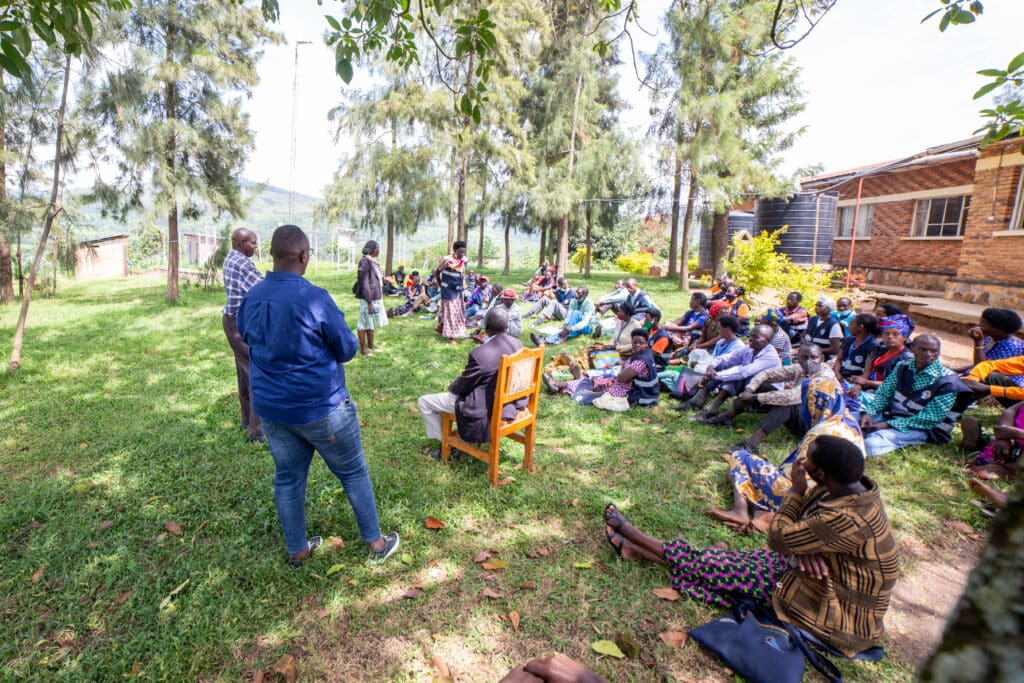
In his role, Rugwiro supports families to stay together, helps resolve family conflicts, and encourages families to keep their children in school and fulfil children’s rights.
Still, Rugwiro wanted to do more to protect children. So, when he heard from local leaders that Hope and Homes for Children was recruiting foster families for children with disabilities, he offered to become a foster parent. We provided him with all the support and training he needed, and soon Rugwiro and his wife were welcoming Ndoli into their home.
When we asked Rugwiro why he wanted to adopt Ndoli, he told me:
“I cannot stand to see children suffering; they are our future as a country. When I was a child, I was supported by someone from the community – he forged me into the person that I am today. It is my turn to give back the kindness I have received in my past.”
When he first joined the family, Ndoli was not very communicative or responsive and was unable to do simple tasks. But after living with his new family for a few months and getting the individual love and attention he needed, he soon learned how to do new things, like helping with household chores, feeding the family cow, and harvesting the fields with his new dad.
Being more active made a big difference and helped improve his speech and memory. Now he can communicate more easily and even remember details of his life before he went to the orphanage. For example, sometimes when he sits with his foster parents, he recalls songs he sung when he was a young boy. And he counts from one to ten, suggesting that he once went to primary school. Best of all, since living with his new family, Ndoli has seizures far less frequently. And when he does have them, he gets lots of love and care.
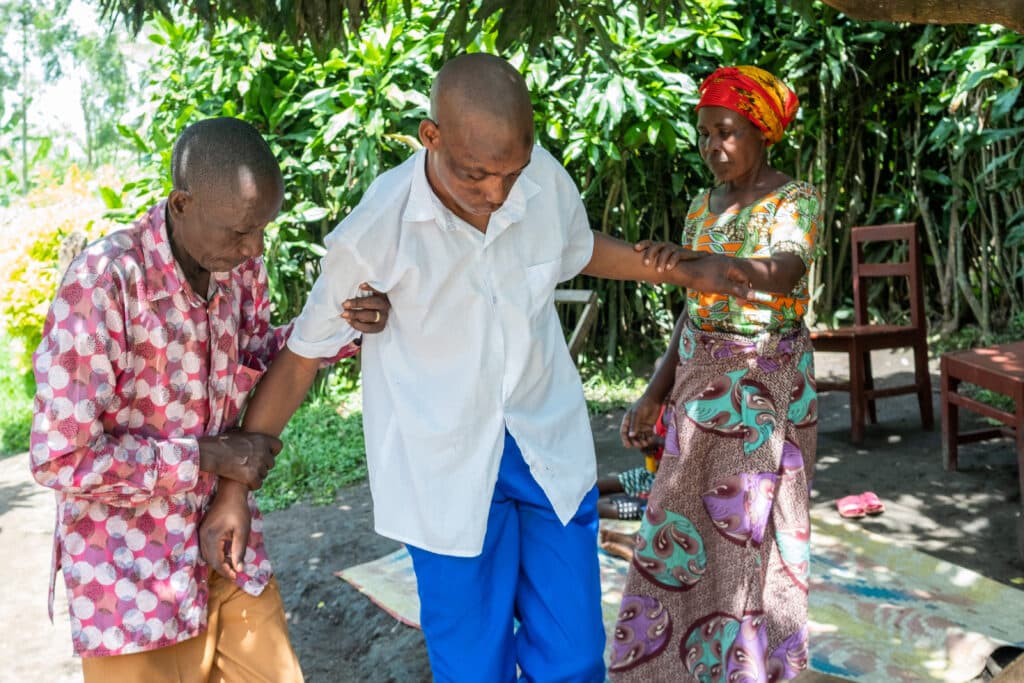
Rugwiro is a proud foster parent:
“We have set an example. Ndoli is one of my greatest achievements. Neighbours always ask me how I done this. They are amazed by what we have achieved by receiving him into our family. We encourage others to foster vulnerable children as well, especially children with special needs.”
Cover image: Foster parents Masaro* and Rugwiro*. Credit: Jean Bizimana / Hope and Homes for Children
Richard Munyaneza is Advocacy, Communication and Safeguarding Coordinator at Hope and Homes for Children Rwanda
The post Meet Rugwiro*: the foster father going above and beyond to protect children appeared first on Hope and Homes for Children.
]]>The post Turning the tide for children with disabilities appeared first on Hope and Homes for Children.
]]>This vibrant community hub (pictured above), run by the inspirational Médiatrice Mukasharangabo and her daughter, Clementine, used to be an orphanage for children with disabilities.
But in 2018, our team began working with our local authority partners to close the orphanage and reunite the children with their parents or other close relatives by making sure that they have the training and support to care for their children at home.
Together with local government, the National Council for Persons with Disabilities (NCPD) and the National Child Development Agency (NCDA), we found all 26 children loving families and closed the orphanage.
Out of the 26 children and young adults with mental and physical disabilities in the institution, we successfully reunited 19 with their biological families; placed two with their extended family; and for the five children and young adults where this wasn’t possible, we found them loving foster families, like Ndoli*, whose story you can read overleaf.
Most of the old orphanage buildings were knocked down, and in their place, we built a vibrant new community hub. Médiatrice and her daughter now happily run the new centre, which offers an inclusive Early Childhood Development (ECD) for children aged 3-6 years and children with disabilities, as well as vital support services for children with disabilities, including occupational therapy, physiotherapy and additional needs education.
It is so wonderful to see so many children now thriving thanks to these services. For example, with the help of physiotherapy, four-year-old Kenis*, who has cerebral palsy, has learned to sit up for the first time.
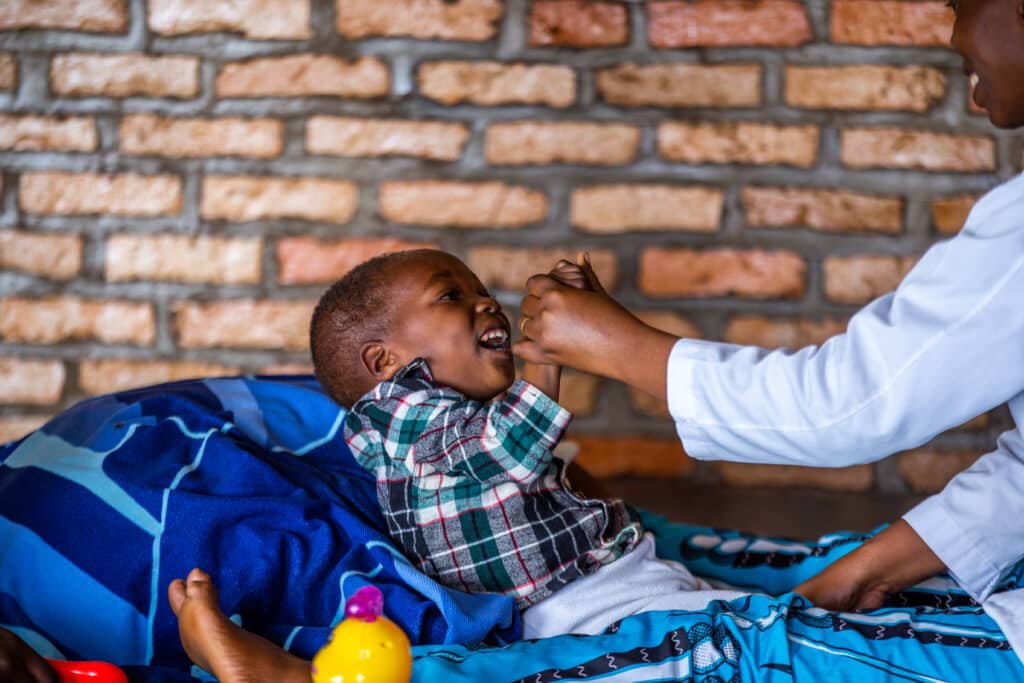
Occupational therapy classes have helped 10-year-old Singiza*, who has epilepsy and learning difficulties, learn to make things using beads.
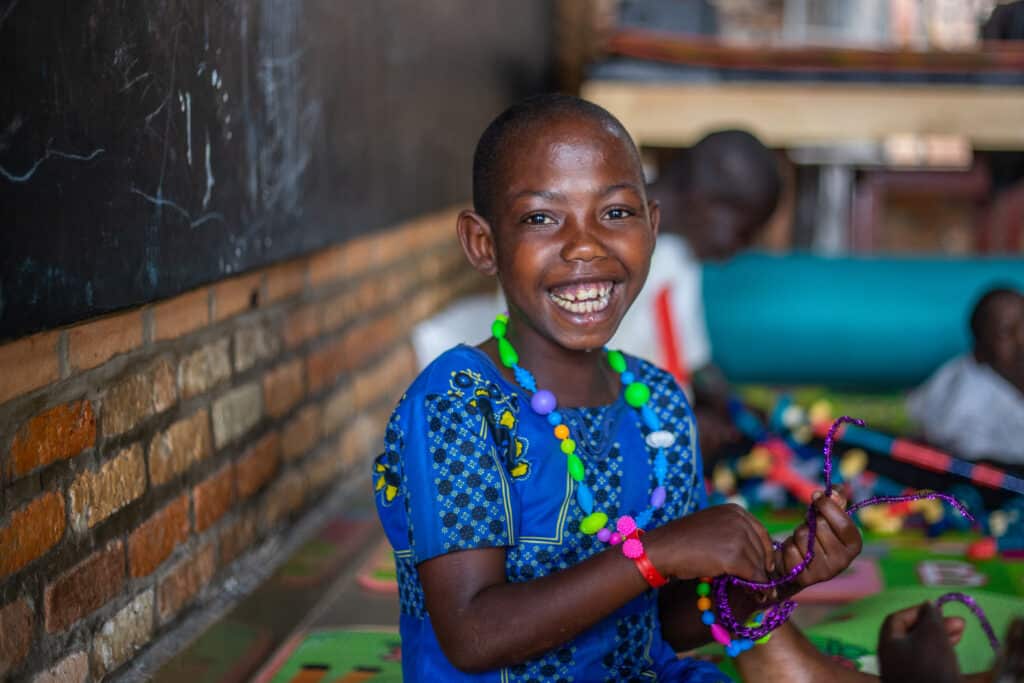
And six-year-old Juju*, who has paraplegia, has learned to write. All vital milestones in their development which they might not have reached otherwise.
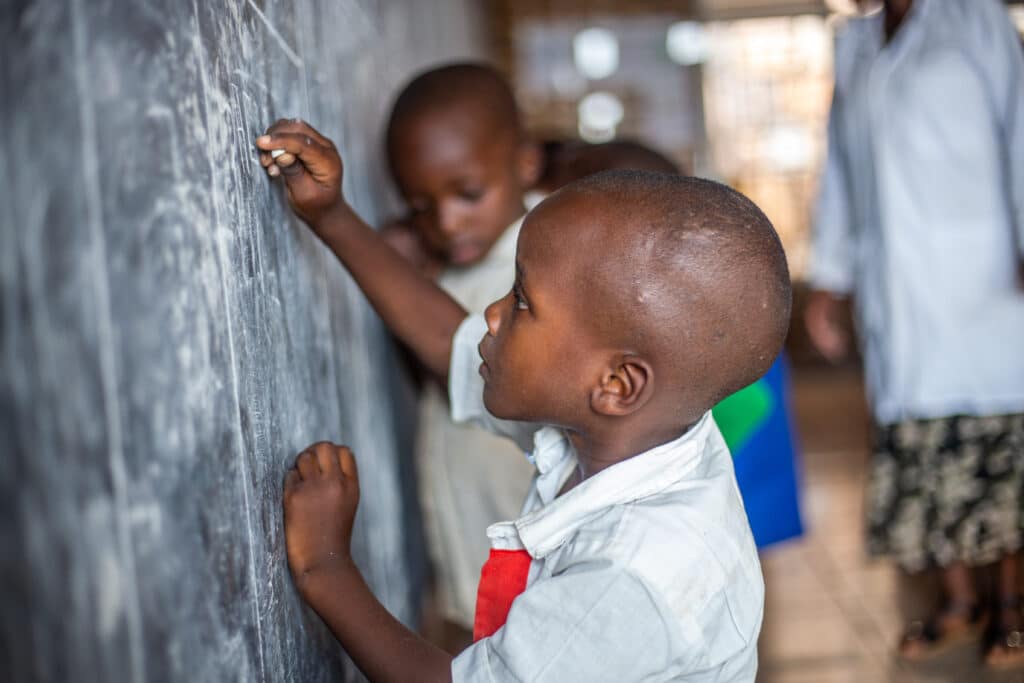
And children without disabilities are also benefitting greatly from their classes and nutritious meals, like three‑year-old Mahoro*, who always has a smile and loves to play and dance with the other kids.
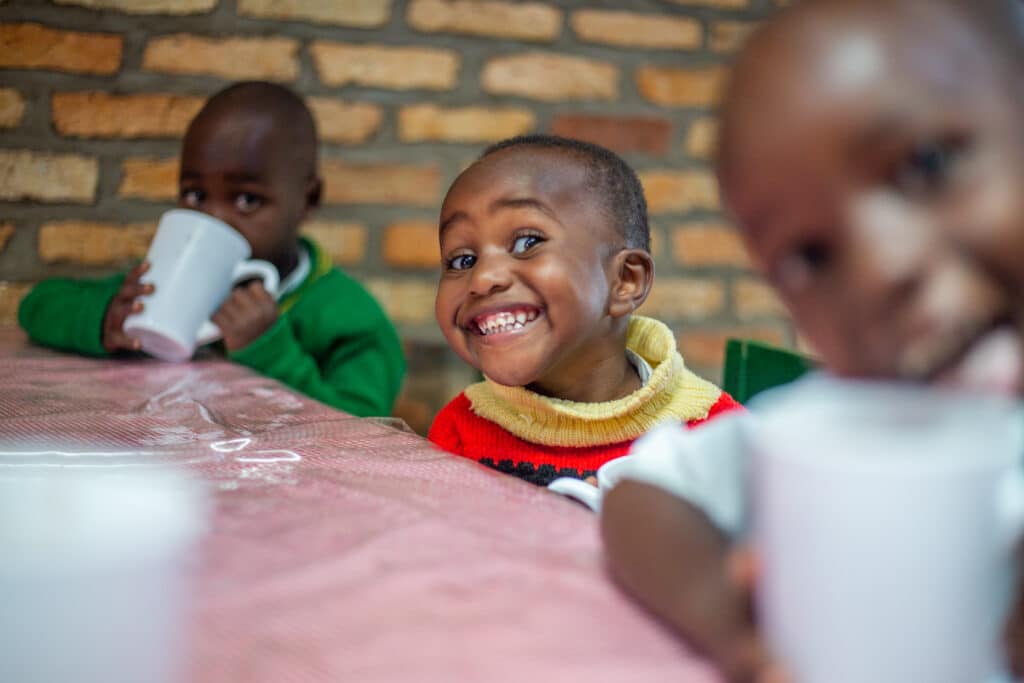
You can read part two of Richard’s blog, which introduces Rugwiro, the foster father going above and beyond to protect children here.
Richard Munyaneza is Advocacy, Communication and Safeguarding Coordinator at Hope and Homes for Children Rwanda
The post Turning the tide for children with disabilities appeared first on Hope and Homes for Children.
]]>The post Trailblazers: how Rwanda is leading the way for an orphanage-free Africa appeared first on Hope and Homes for Children.
]]>Last year, history was made in our country. With the unanimous passing of the Kigali Declaration in June 2022, the Commonwealth nations pledged to end the institutionalisation of children once and for all. That’s 54 nations saying no to orphanages, the separation of families and the mistreatment of children – a revolution across the Commonwealth that starts in Rwanda.
Now, the next key milestone is for us to make Rwanda orphanage-free by 2026. And with your continued support and donations, we can make this happen.
Our journey so far
Over the past twenty years, Hope and Homes for Children has been working in Rwanda to pursue this goal. From supporting struggling families to creating community spaces, from reuniting families to deinstitutionalising children with disabilities, our approach has been dynamic, inclusive and pioneering.
Supporting individual families
In 2002, we began by supporting selected families most in need throughout Rwanda to prevent children from ending up in orphanages. Our society still bears the tragic scars of the genocide against the Tutsi in 1994. In its wake, there were many children growing up under the care of frail and elderly grandparents, struggling single parents, or often, their elder brother or sister. We did all we could to help families create a healthy home environment – from building houses for children and families that were homeless, to helping them access education and healthcare and improve their income and family relationships. Our social workers listened to each family’s needs and aspirations and celebrated their strengths. Together, they paved the way for their journey from vulnerability to self-reliance – the first step on the road to an orphanage-free Rwanda.
Introducing community hubs
Through our work with individual families, it quickly became clear that many families did not have access to vital services they needed. So in 2005, we expanded our work to reach even more families by introducing our ‘community hubs’ – centres in the heart of the community to provide whatever services families need most, from early childhood development to parenting skills workshops. This community-based approach builds social cohesion, prevents family breakdown and supports children, people with disabilities and the elderly.
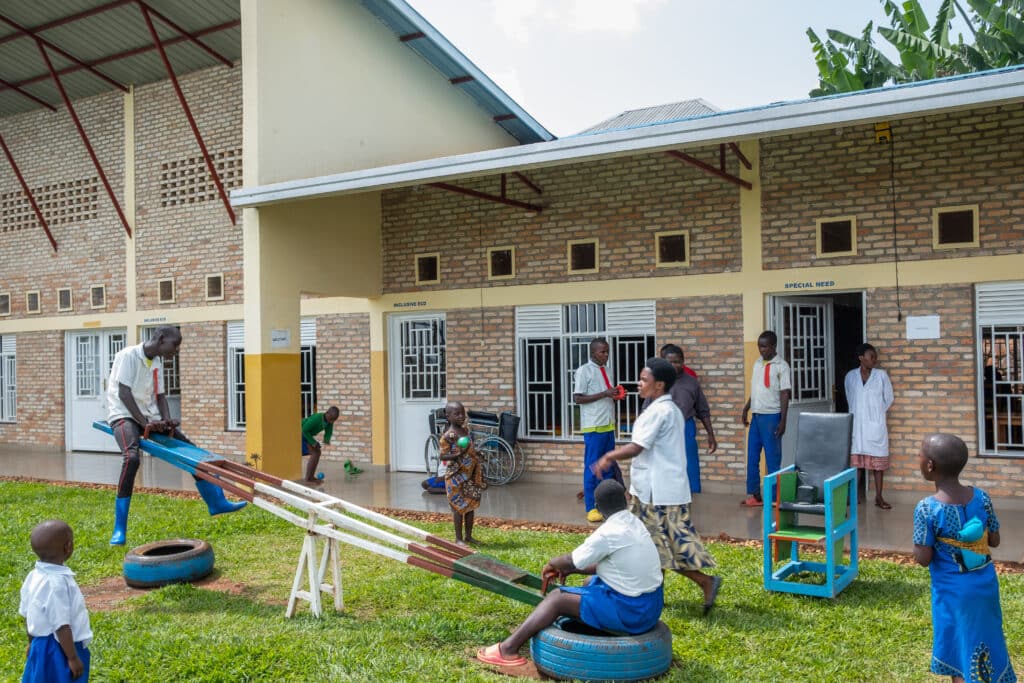
National commitment to closing orphanages
Our work took a big turn in 2010 when we teamed up with the Ministry of Gender and Family Promotion for a project to end the institutionalisation of children in Rwanda. With this project, we could put an end to a practice dating back to 1954. After kickstarting the first professional closure of a children’s institution and launching a survey of children’s institutions across the country, in 2012 the Rwandan administration approved a national strategy for childcare reform.
As a result of this policy, over 91% of children have been reintegrated with their families. Now, Rwanda has only 10 orphanages left, down from 41. Numbers are important, but the smiles, happiness, and sense of belonging that children experience with life in a family speak volumes.
Closing orphanages for children with disabilities
Since then, the national agenda for childcare reform has become even more inclusive. 2019 saw the first closure of an institution for children with disabilities in Rwanda. These former institutions have been turned into vibrant community hubs, offering support and learning opportunities to hundreds of disabled children, like Peter* (pictured above), who were previously left at home with no care or stimulation. This has been championed by parents of children with disabilities who have seen the many gaps in childcare facilities.
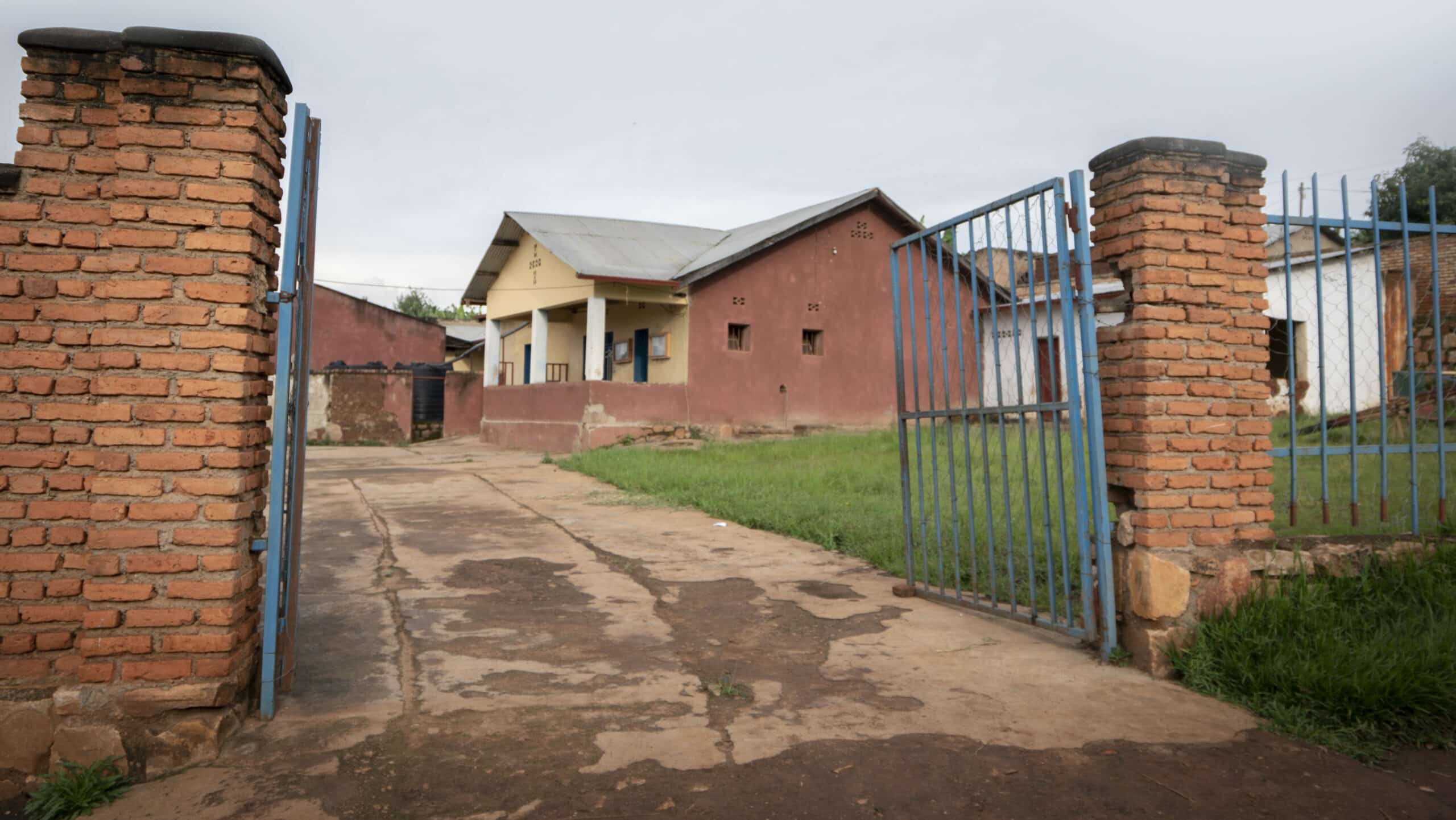
The road ahead
The road ahead remains long, however, and there’s still more work to be done. Without the Rwandan government’s strong will, its dedicated social workforce, and money available for the entire process, the transition of children from institutions would not be possible. To ensure the legacy of the 2022 Kigali Declaration, there’s now an urgent call for more support for Rwanda to complete its mission and become a vibrant learning hub.
Rwanda’s roadmap to an orphanage‑free future is already being shared with other countries, and we can expect that the demand for support will continue to increase. Our team has already hosted a number of Learning Exchanges with Kenya, Uganda, Zambia, Malawi, South Africa, and Ghana, with some new Hope and Homes for Children’s initiatives launching in Kenya this year.
Our work in Rwanda goes beyond borders, setting a standard for countries throughout Africa and around the world. Now, twenty years since Hope and Homes for Children began working here, Rwanda is a pathfinder nation for ending child institutionalisation.
We need your support to pursue this momentum. So far, our work in Rwanda has helped to support 150,000 children and family members. That’s 150,000 smiles, 150,000 dreams, 150,000 people who deserve a united home. If we continue down the trail that’s being blazed by Rwanda, we can do the same for the 5.4 million children still suffering in institutions, and their families.
And that’s exactly what we plan to do.
Cover image: 16-year-old Peter* is now thriving thanks to the learning opportunities available at his local community hub. Credit: Jean Bizimana / Hope and Homes for Children
Innocent Habimfura is Country Director, Hope and Homes for Children, Rwanda
The post Trailblazers: how Rwanda is leading the way for an orphanage-free Africa appeared first on Hope and Homes for Children.
]]>The post International Day of Persons with Disabilities appeared first on Hope and Homes for Children.
]]>3rd December marks International Day of Persons with Disabilities, a day to promote a deeper understanding and awareness of the rights of children and adults with disabilities.
Human rights are universal but the human experience is not universal. At Hope and Homes for Children, we know that around the world, children with disabilities are disproportionally placed in institutions. Even in countries that have reduced the number of children in institutions, children with disabilities often remain institutionalised or get left behind in an incomplete care reform process that sees other children return to family care.
Children with disabilities are separated from their families due to a range of factors, like discrimination, social exclusion and the lack of available support. Once institutionalised, they are at higher risk of violence, neglect and poor health than their peers.
On this day, we’re shining a spotlight on children with disabilities in orphanages in Ukraine and the impact of the conflict.
Before the invasion of Ukraine in February 2022, Ukraine had the highest number of institutionalised children in Europe, with more than 90,000 children in institutions, nearly half of whom were children with disabilities (1).
A ‘system of myth diagnosis’
Hope and Homes for Children’s research into baby homes in Ukraine in 2020 described a ‘system of myth diagnosis’. Orphanages need to house more children in order to continue to perpetuate their existence, so, children were diagnosed with more serious conditions than they had and placed in institutions. This is one of the root causes fuelling the systematic recruitment of children into institutions. This is due to a still prevalent ‘medical model’ that looks at disability as a medical ‘issue’ that should be treated. The alternative and prevailing social and human rights model of disability focuses instead on removing barriers in society to help children with disabilities thrive.
For example, our research found that almost 70% of children in baby homes were somatically/neurologically healthy and only had developmental delay due to the deprivation they experience within the institutions. Healthy babies were being given up by their families and put at risk in orphanages, deprived of their liberty. If universal or specialised health and therapy services had been available within their communities, families could have remained together, with better outcomes for every child.
There is absolutely nothing in our village or in the rayon [district] centre – no specialists, no special classes or groups. It is virtually impossible to find a speech therapist or neurologist. You have to travel to the oblast [region] centre but this is quite expensive. Mothers have to lift children and they grow heavier. We need just minimum services – at least some small support centre in the rayon.
Mother of a child with a disability, during our research in 2020.
An already serious situation for children with disabilities has significantly worsened since the February invasion.
At a UN event in August 2022, UNICEF testified that there was evidence that children in institutions were being abandoned and neglected and that some children have starved to death without support (2).
Disability Rights International documented that children with disabilities had been moved from orphanages in the east, then placed in the now crowded and overwhelmed facilities in the west of the country, without sufficient staff or training for their needs. 3
A joint UNCRC and UNCRPD report (4) in October 2022 underlined that children with disabilities are:
severely adversely affected by institutionalisation” and, since the escalation of violence, are in “overcrowded and understaffed facilities that cannot provide children with adequate care and expose them to a high risk of harm.
What’s more, due to the conflict, many children have been moved elsewhere, sometimes back to their families without support, sometimes to other institutions. It is particularly challenging to get accurate numbers and information about children with disabilities that remain within the institutional system or about those sent back to families. We have joined the international community in calling for a more robust data system to track children.
Reflections from our team
At Hope and Homes for Children, we have a firm belief: families, never orphanages.
Halyna Postoliuk, our Country Director at Hope and Homes for Children Ukraine, was in Brussels this week, attending a roundtable on Ukrainian children with disabilities in Europe, a workshop on deinstitutionalisation for children with disabilities and various other events highlighting disability rights in Ukraine.
She reflected:
“We need concerted mobilisation, including financial support and humanitarian aid, from the international community to help the development of emergency foster care alternatives for children with disabilities. Many of these children have faced horrific and traumatic life experiences, during the war and before. They can only recover and hope for a better future if their right to grow up in a safe family environment is upheld.”
Pete Garratt, our Director of Global Programmes, also visited Ukraine a few weeks ago and met a foster parent supporting children with disabilities in Ukraine and shared his impressions:
What next?
Long term, we are calling for everybody with an eye on the future reconstruction of Ukraine to support Ukrainians to build a better future for all of their children. Reconstruction aid must not be used to rebuild the old failed system but instead be channelled into a reformed system that strengthens the resilience of communities and puts family care at its heart – family care for all children.
Hope and Homes for Children is calling for care reform to be a clear condition of Ukraine becoming an EU member state and for this to be matched by significant EU financial support and advice. We are calling for the UK to put care reform on the agenda of the international Ukraine Recovery Conference that it is hosting next June – ensuring that any money pledged for Ukraine includes a significant pot allocated to support care reform for all children.
Right now, as winter grips Ukraine, more needs to be done to understand the immediate humanitarian needs of its vulnerable children and particularly its children with disabilities – across the whole country. The establishment of a complete information management system, allowing the government and humanitarian agencies to track children deprived of family care and monitor their safety, well-being and needs, has never been more urgent.
Children flourish when they have the love and care a family can provide. By providing families with the proper financial and emotional support they need, we can ensure that children with disabilities do not end up in dangerous orphanages.
Author: Nolan Quigley
The post International Day of Persons with Disabilities appeared first on Hope and Homes for Children.
]]>The post Commonwealth commits to eliminating orphanages appeared first on Hope and Homes for Children.
]]>Today the Commonwealth Heads of Government Meeting (CHOGM) has made an historic commitment to the elimination of orphanages, agreed by all 54 Commonwealth nations: The Kigali Declaration.
Over the last four years, we’ve been working behind the scenes with the Government of Rwanda, hosts of CHOGM 2022 and Chair of the Commonwealth for the next two years, on a declaration that will liberate millions of children confined in harmful orphanages across its member states.
Over one third of world’s children live in the 54 nations of the commonwealth.
On Saturday 25th June, the Commonwealth announced that this declaration has been unanimously agreed. It is one of only four unanimous declarations at the summit.
A milestone moment in the fight against orphanages
This agreement is a milestone moment in the movement to rid the world of harmful and unnecessary orphanages. Orphanages that deprive children of a family and expose them to neglect and abuse. Over 80% of children in orphanages have living parents but are confined to orphanages because of disability, discrimination and poverty.
Over 30 years, we’ve shown it is always possible for children to grow up in loving families: keeping families together, reuniting families and, when needed, building new families. Working with governments to reform systems and provide support services to keep families together.
Our work in Rwanda has transformed child protection and care. Rwanda is on the brink of becoming Africa’s first orphanage-free nation.
We won't leave children with disabilities behind
With a family to support her, Uwase is thriving. But she risked a life confined to a Rwandan orphanage because she was disabled
How loving families for disabled children will free Rwanda from orphanages
The ‘Starlight Declaration’
CHOGM delegates have already declared this the ‘Starlight Declaration’ of the summit, because of the hope it will bring to millions of children suffering in the shadows, incarcerated in harmful orphanages.
The Kigali Declaration is particularly important right now, as:
- Eliminating orphanages is a precondition of developing effective child protection and care systems. And we’ve demonstrated it’s a winnable mission.
- Within the next few decades the UN estimates that half of the world’s children will be African. In due course, half of humanity will be African. Getting child protection and care policy, practice and resourcing right in Africa will give humanity its greatest hope.
- Rwanda is marshalling African countries to make that difference. It’s leading the way, by investing directly in families and the capabilities of communities to protect and care for children. It’s only a few years away from closing its last orphanage. As Chair of the Commonwealth, Rwanda’s in a position to convene and lead those nations that are already making commitments to eliminate orphanages.
- The Commonwealth has a unique approach to convening discussions among countries. It incubates innovation and technical collaboration, and develops home-grown, culturally rooted and highly effective approaches to common challenges. This makes the probability of successful implementation of this declaration all the more likely.
Minister of State in charge of Social Affairs Assumpta Ingabire received Mark Waddington, Chief Executive of Hope and Homes for Children, alongside Innocent Habimfura, Hope and Homes for Children Rwanda's Director, for a meeting in advance of the declaration at this year's Commonwealth Heads of Government Meeting in Kigali.
The Kigali Declaration states that:
“Children in most marginalised and vulnerable situations have been disproportionally affected by the effects of the COVID-19 pandemic, including … children in institutions.
Building on the CHOGM 2018 Commonwealth Youth Forum Declaration, requesting us to “renew our commitment to ‘Leave No One Behind,’” recognising that millions of children and young people still live in care institutions, including many children and young people with disabilities;
Recognising the potential negative effects of institutionalisation on children’s physical, emotional and psychological well-being and the collective role of care and protection reform, donors, and governments in tackling this issue through the provision of quality, integrated, community-based mental health and psycho-social support
We, as Commonwealth Heads of Government, commit to:
Positioning the Commonwealth as a leading advocate on child care and protection reform by implementing the UN Resolution on Children Without Parental Care;
Recognising the importance of providing a range of quality alternative care options, including…family and community-based care and, where relevant, redirecting resources to family and community-based care services, with adequate training and support for caregivers and robust screening and oversight mechanisms, and progressively replacing institutionalisation accordingly, we undertake to take appropriate measures to:
- Strengthen health systems for future pandemics and ensure adequate response to the needs of all children and young people;
- Expand social protection coverage to reduce poverty and promote human capital for all children and young people, and strengthen social protection systems to better respond to future shocks;
- Tackle the underlying causes that lead to children requiring care and protection;
- Tackle the underlying causes of the separation of children from their families and communities, including by progressively replacing institutionalisation with quality alternative care across the Commonwealth;
- Put in place the necessary frameworks and resources to ensure sustainable and effective child protection and safeguarding systems for care and protection of all children, including the elimination of child labour in all its forms, forced labour, trafficking and sexual exploitation.
- Implement a policy of zero tolerance for violence, harassment, abuse, stigma, or discrimination, paying particular attention to the most marginalised and excluded children and those in a situation of vulnerability.
- Encourage development agencies by 2025 to:
- Support staff, as well as applicants and recipients of aid, development assistance and investment, to prioritise quality care arrangements at the community level, over institutionalisation, including for children with disabilities;
- Support projects which take a holistic and inclusive approach to child protection systems development and family strengthening;
- Provide clear information on how funding supports families and family-based systems of care.
- Amplify and support the voices of children and their families, including the under- represented voices of girls, children with disabilities and other marginalised groups, and support the meaningful participation in society of children, young people, their families and their representative groups;
- Support inclusive, accessible, quality community services, including all aspects of education, health and social services, that meet the diverse requirements of children and their families, and support the choice, dignity, autonomy and full participation of all children and their families in society, including the most marginalised
- Recognise the role of evidence-based research and data disaggregation in providing a clear picture of the challenges facing child protection across the Commonwealth
- Recognise that well-meaning support for institutions through international aid, donations, orphanage volunteering, mission trips or tourist visits, can in some cases lead to unnecessary family-child separation and undermine care reform efforts;
- Undertake to improve data collection, information management and reporting systems related to children without parental care in all settings and situations to close existing data gaps and develop global and national baselines.
Read the communiqué, leaders statement and all declarations here
Hope and Homes for Children CEO, Mark Waddington CBE, says:
“There are not many moments when we have the opportunity to tilt the axis of the human planet in the favour children. But that has just happened. Millions of children, who have mums and dads, are denied the love and protection of a family across the Commonwealth because they are unnecessarily incarcerated in orphanages. Today that ends.
The Commonwealth Heads of Government Meeting has unanimously agreed a declaration which commits the Commonwealth to liberating children from harmful orphanages and to investment in families and community capabilities to provide the love and protection all children have a right to. The Starlight Declaration.
Declarations are of course just pieces of paper. But this is different. The Rwandan Government, which will lead the Commonwealth for the next two years, is already taking action to convene like-minded countries to commit to action. They are showing the way by closing every, last orphanage.
And here’s a great thing: they will not leave a single child behind. So all those children with disabilities, who are so often overlooked, are being placed back with their families or in alternative forms of family care. Each one with the support they need to be cared for like any other child. Because anything less would be wrong.
Celebrate life and love today more than you might otherwise have.”
The post Commonwealth commits to eliminating orphanages appeared first on Hope and Homes for Children.
]]>